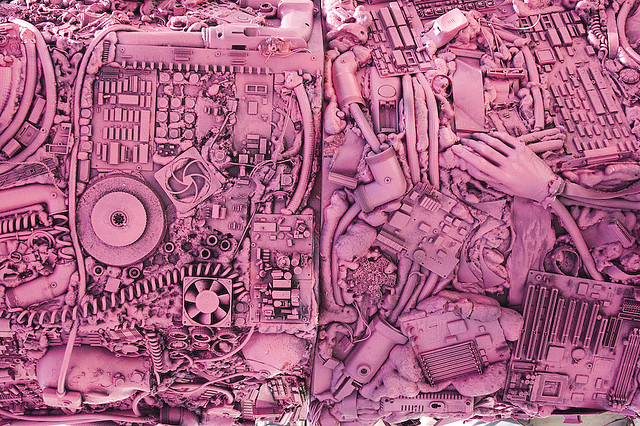Like this article? rabble is reader-supported journalism. Chip in to keep stories like these coming.
Avid fans of technology have a term for folks who aren’t so rabid about code and gadgets — they call them “normals.” Normals see computers, smartphones or wearables as merely means to an end. They don’t care about features, updates or even which operating system a device runs. They have no patience with bugs. They just want the damned things to work.
On the other hand, tech fans — nerds — see gadgets as an end in themselves. Tech nerds read manuals, argue over open vs. proprietary software and crave the new, flaws and all.
And, nerds have spent years tinkering with hardware and fussing with software. They have developed a conceptual framework for how each works and what you can expect interfaces to do, when.
Normals, however, have usually spent as little time as possible with software and devices. So, they haven’t developed the same conceptual framework and are often reduced to jotting down rote steps when software is explained to them. For nerds this is a dreadful way to learn and it drives them crazy to watch it. Why?
Imagine, for example, you never used a DSLR camera. Maybe you’ve taken pictures with a point-and-shoot, but you really don’t have any real concept of optics. So, someone explains depth of field to you and you dutifully write down “the smaller the aperture, the greater the depth of field but the bigger the lower number in the f-stop setting.” You try to memorize it but you often get it mixed up and really don’t see the connection between the three things. That’s because you lack the conceptual framework that connects those items together in such a way that memorization is unnecessary. The relationships are inherent in the underlying concept.
Or, suppose your first language is Spanish. You listen to someone struggle with irregular verbs, verbs they painstakingly memorized. When you hear their errors you just know they’re wrong without thinking and you can’t imagine why it doesn’t sound wrong to the speaker.
That’s exactly what it’s like when tech nerds listen to normals struggle with software or hardware. They can’t believe that normals don’t instinctively understand the difference between local and cloud storage, POP and IMAP email or even what a right- or option-click is for.
Meanwhile, normals find nerds condescending and obtuse. Nerds just take over keyboards, do steps far too fast, can’t understand why you didn’t follow and get mad when you write things down so you can remember. Plus, the nerds say things like, “here, let me Google that for you” or “you just save it out as a low rez jpeg and append it to your email, like we did two weeks ago.” Or, the worst, “Why is it worth an hour of my time to help you, but not an hour of yours to read the manual?”
For normals, manuals are nearly useless. The manuals tell you everything you don’t need to know but not the one thing you do. And manuals often use terms they don’t understand, like “split clip” instead of “edit clip” or the document writers assume a basic knowledge of a computer’s file system that normals often don’t have.
But for nerds, not reading a manual or watching a tutorial for software you want to use is as dumb as not reading a manual for a car and then complaining you didn’t realize you had to turn the key in the ignition to start it, which is exactly how many of the normals’ complaints sound to them.
These are and will ever be the two solitudes of technology. And, if you don’t get that reference, here, let me Google that for you.
Listen to an audio version of this column, read by the author, here or below.
Wayne MacPhail has been a print and online journalist for 25 years, and is a long-time writer for rabble.ca on technology and the Internet.
Photo: Marilin Gonzalo/flickr
Like this article? rabble is reader-supported journalism. Chip in to keep stories like these coming.



